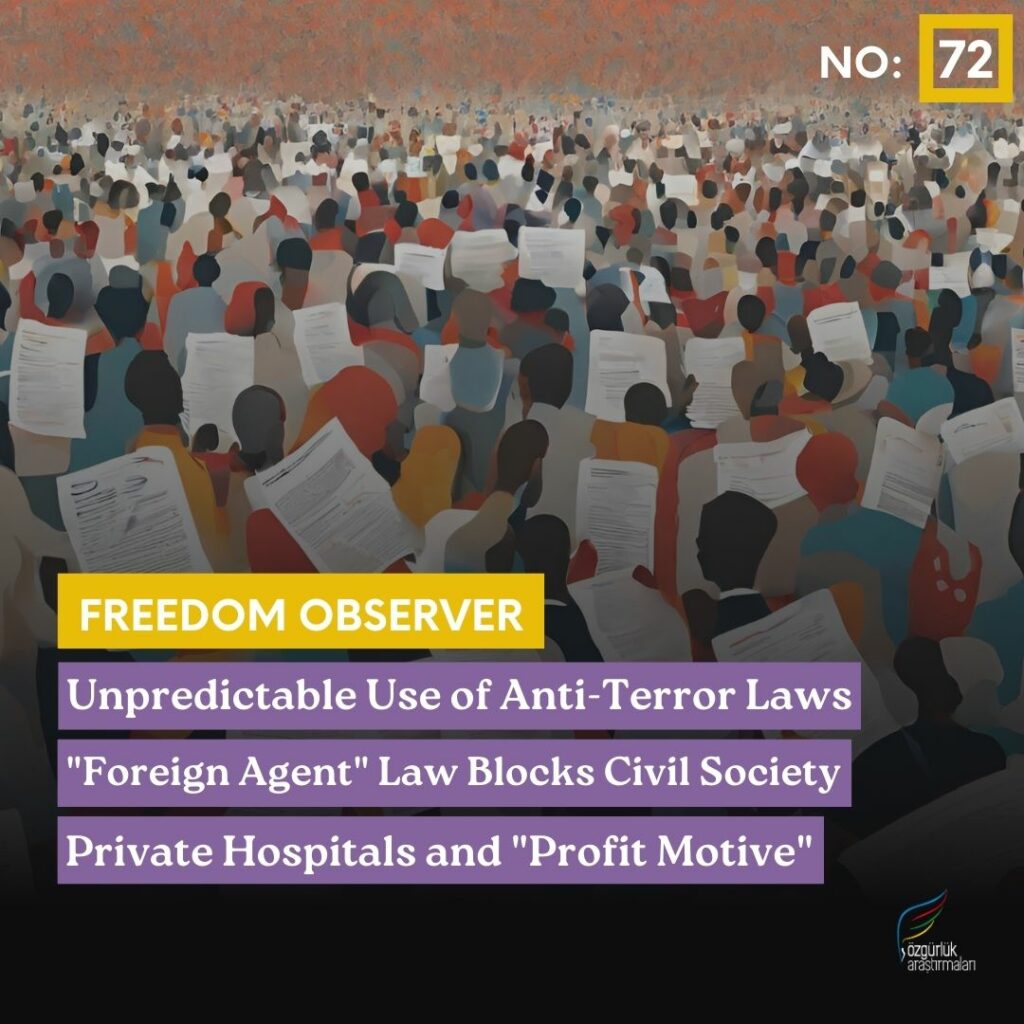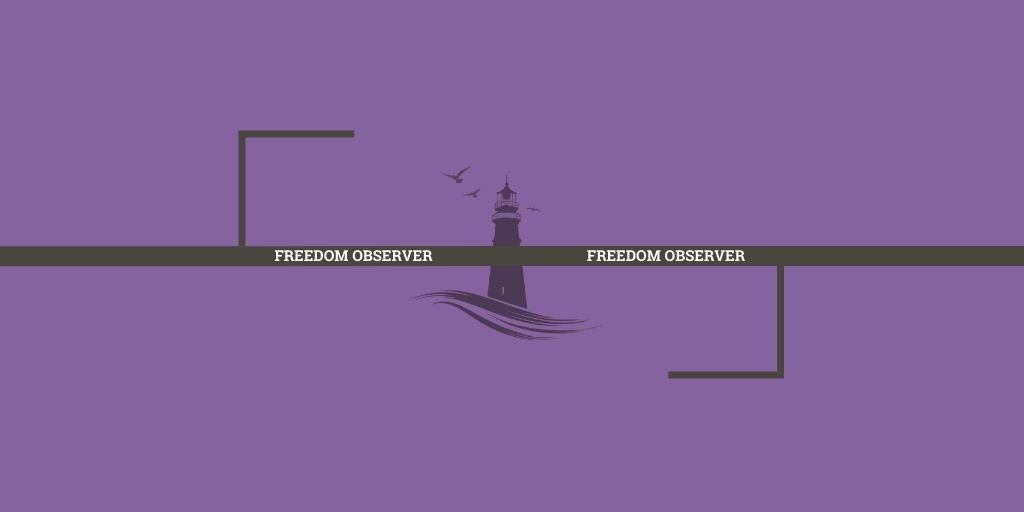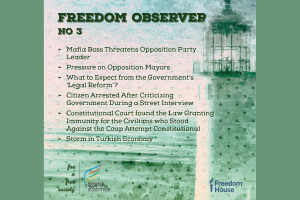
From Editor-in-Chief
The issue of resolving the longstanding challenges facing Kurds in Turkey—equality, citizenship, freedom, and justice—through peaceful and democratic means remains consistently on the agenda. Early in October, a symbolic gesture from MHP leader Devlet Bahçeli, who shook hands with DEM Party members in the Turkish Parliament, followed by Bahçeli’s call for Abdullah Öcalan to lay down arms, sparked a glimmer of hope among the public for a potential solution to the Kurdish issue. Discussions in newspapers and on television speculated that a new “resolution process” was either beginning or on the verge of starting. However, the tone shifted almost entirely following President Erdoğan’s message for Republic Day and his lengthy speech to the AKP parliamentary group.
Unlike Bahçeli’s approach, President Erdoğan directly addressed Kurdish citizens with a speech that presumed they did not have significant issues related to freedom, justice, and democracy. He emphasized that Kurds should embrace the “brotherhood law,” which he believes exists between Kurds and Turks, primarily from religion and a shared historical past. Erdoğan stated, “We have no call to the separatist terrorist organization in northern Iraq and Syria nor to the bloodthirsty terror barons in Kandil, nor can we have any.
Meanwhile, Erdoğan called on Kurdish citizens to “build the Century of Turkey together” on the foundation of “brotherhood law” and to “strengthen the internal front against friends and foes alike.” According to Erdoğan, this concept of brotherhood law required Kurds to withdraw their presumed support for the PKK. He urged Kurds to exclude the DEM Party—a leading democratic-political representative of Kurds, which he described as a political party that “lacks the desire and will to become part of Turkey” and “serves hostility rather than brotherhood”—from the equation rally around the AKP, and place their trust in the state. Erdoğan also emphasized their continued determination to “eradicate terrorism and dry up the swamp from which it breeds.
It is evident that President Erdoğan (and the People’s Alliance) have no intention or plan to initiate a new peace process to resolve the Kurdish issue. Instead, Erdoğan aims to garner the support of Kurdish voters for himself and his party, likely consolidating power to an extent where he would no longer need any partners. In short, the resolution of the Kurdish issue has been “postponed once again, perhaps for another season”—assuming, of course, that the state still has any such intention.
Another significant issue that has occupied the political agenda in recent days is the government’s determination to resume its trustee appointments, a practice it had paused for a while, and to potentially include the CHP within this framework. As is well known, just a few days ago, the mayor of Esenyurt (Istanbul), Ahmet Özer, was detained on allegations of “membership in the PKK terrorist organization” and subsequently arrested. A government-appointed official was assigned as a trustee in his place. According to Taha Akyol, Özer’s arrest was reportedly based on his having extended condolences by phone to the third son of a mother, two of whose sons had joined the PKK. The third son, however, has no ties to the PKK. In other words, if this information is accurate, offering condolences for the death of a mother to someone with “terrorist” siblings is now considered a crime in this system!
Unfortunately, the misuse of the concept of “terrorist” through tenuous associations is not a new practice in Turkey. In his article below, our colleague Ali Rıza Çoban discusses how the concept of terrorism is exploited through interpretive abuses in Turkish judicial practice.
On the other hand, appointing a government official to replace an elected official rather than another member of the elected municipal council is an anti-democratic practice. This practice is based on the authority granted by an amendment to the relevant legislation enacted through an emergency decree in 2016. However, aside from its anti-democratic nature, continuing to apply an authority specific to the state of emergency after returning to normalcy contradicts the principle of the rule of law and the Constitution.
As might be expected, this arbitrary practice has led to widespread dissatisfaction nationwide, with many citizens and civil organizations protesting against it. Meanwhile, 38 bar associations (why not all bar associations and the Union of Bar Associations?) issued a joint statement criticizing the arrest of Esenyurt’s mayor and the appointment of a trustee as an anti-democratic action. In the meantime, President Erdoğan filed a lawsuit for defamation against CHP Chairman Özgür Özel and Istanbul Metropolitan Municipality Mayor Ekrem İmamoğlu, who had criticized the unlawful dismissal of Ahmet Özer and the initiation of a criminal investigation against him. This is indeed an irony, a remarkable irony.
Meanwhile, as may be recalled, the political administration attempted a legislative initiative in the spring to penalize actions it labeled as “foreign agent activities.” However, due to widespread public backlash, this proposal was withdrawn. Unsurprisingly, the same bill was recently reintroduced by AKP members and was approved by the Parliamentary Justice Committee on October 24. Given the circumstances, it is almost certain that this proposal—which we previously addressed in issue 61 and described as a severe threat to civil liberties, conceivable only in a totalitarian regime—will be enacted into law. In his article below, our colleague Ö. Faruk Şen provides a more detailed analysis of this legislative initiative and highlights its dangers to freedoms. Caner Gerek also examines the recent scandal involving a private hospital and delves into the broader issues surrounding private healthcare institutions.
See you until the next issue of Freedom Observer.
* Prof. Dr. Mustafa Erdoğan
The Unpredictable Interpretation and Application of Anti-Terror Legislation
The unpredictable and arbitrary broad interpretation of anti-terror legislation in Turkey has become a structural issue. This situation, which also points to problems related to judicial independence, reveals a deficiency in the rule of law. As a result, anyone who expresses views displeasing to those in power—including opposition politicians, civil society workers, journalists, academics, and human rights defenders—can be subjected to investigation, prosecution, arrest, and conviction based on vague terrorism charges. This leads to the unlawful restriction of fundamental rights and freedoms, particularly freedom of expression and association.
Over the past decade, numerous independent observers have written countless reports on the unpredictable interpretation of anti-terror legislation, and international organizations have repeatedly warned Turkish authorities on this matter. However, it is difficult to say that any positive developments have occurred. In 2016, the Venice Commission produced a report on certain articles of the Turkish Penal Code, finding that these articles were applied in an overly broad and unpredictable manner, violating the rights safeguarded by the European Convention on Human Rights. The Commission issued warnings that these provisions should be amended and applied in a manner consistent with the principles of the Convention.[1] Over the past decade, the Council of Europe’s Human Rights Commissioners have also published numerous country reports and memoranda on Turkey, highlighting arbitrary applications of anti-terror legislation and offering warnings and recommendations to Turkish authorities.[2]
The European Court of Human Rights (ECHR) has also issued rulings on several articles of the Turkish Penal Code, including Article 125/3[3] on insulting a public official due to their duties, Article 220/6[4] on committing a crime on behalf of an organization without being a member, Article 220/7[5] on aiding an organization, Article 299[6] on insulting the President, Article 301[7] on insulting the Turkish nation and state institutions, and Article 314[8] On membership in a terrorist organization. These rulings determined that these provisions were interpreted in an unpredictable manner, and actions intended to exercise rights protected by the Convention were criminalized. The Committee of Ministers, which oversees the implementation of ECHR judgments, periodically monitors whether the general measures required by these rulings have been adopted by Turkish authorities. To date, no general measures have been deemed implemented for any of these judgments, nor have they been removed from the monitoring process.
On October 22, 2024, the European Court of Human Rights (ECHR) ruled that Article 314 of the Turkish Penal Code had been applied in an unpredictable manner, leading to the arrest of a politician on charges of membership in a terrorist organization due to their political speeches. The Court found that this application violated both Article 10 of the Convention, which guarantees freedom of expression, and Article 5, which guarantees the right to liberty and security of person.[9]
The applicant, who is the co-chair of the Democratic Regions Party, was investigated on charges of membership in a terrorist organization due to speeches made at various political meetings and statements given to the press. The applicant was detained on May 12, 2016, subsequently arrested, and later convicted at the end of the trial. The application in question pertains to an appeal based on the detention. The European Court of Human Rights (ECHR) noted that all charges against the applicant were related to political speeches, which included severe criticism of the government and law enforcement but did not praise or incite violence, nor did they contain hate speech. The Court considered that these criticisms fell within the limits of freedom of expression. It also pointed out that there was no concrete evidence in the case file to suggest that the applicant acted in line with the instructions of a terrorist organization and that the detention orders were not based on such evidence. The ECHR concluded that the legislation was interpreted in an arbitrary and unpredictable manner.
In this ruling, the European Court of Human Rights (ECHR) specifically references findings by both the Venice Commission and the Council of Europe’s Commissioner for Human Rights, highlighting that Turkish judiciary systematically applies anti-terror legislation without considering the principles of the Convention. The ECHR’s determination that this issue is structural and systemic is likely to have significant future implications. Recent developments further confirm the validity of this assessment. A return to the rule of law in Turkey is achievable only if the judiciary aligns with universal standards and ceases to be instrumentalized.
* Doç. Dr. Ali Rıza Çoban – Constitutional Lawyer
A Blockade on Civil Society and Journalists: The “Foreign Agent” Regulation
The ruling Justice and Development Party (AKP) has introduced a proposal to amend the Turkish Penal Code by incorporating the concept of “foreign agent activity.” This proposal has passed through the Parliamentary Justice Committee. Presented as part of an omnibus bill, the amendment stipulates that individuals committing offenses “against state security or internal or external political interests, in line with the strategic objectives or directives of a foreign state or organization,” would face imprisonment ranging from 3 to 7 years. If such acts are committed during wartime or in situations that could jeopardize military operations, the sentence increases to between 8 and 12 years. While the bill is expected to be discussed in the General Assembly of the Turkish Grand National Assembly in the coming days, it has not garnered the attention it warrants amid the current busy agenda.
Before assessing the threats this bill poses to rights and freedoms, it is necessary to discuss the public relations method employed by the ruling AK Party in implementing its illiberal policies. The government and pro-government media[10] Are attempting to legitimize this legal provision by claiming that similar examples exist in the West. In reality, the government has previously employed this “Western-referenced legitimization” strategy—created in a highly selective and manipulative manner—in various areas, such as animal rights laws, alcohol sales restrictions, and similar issues.
However, this approach overlooks some key differences between Western practices and Turkey’s proposal. In liberal democratic countries, laws are typically enacted to promote transparency, democratic accountability, and public access to information. In contrast, Turkey’s “foreign agent” bill is primarily aimed at silencing voices critical of the government. For example, the U.S. Foreign Agents Registration Act (FARA) requires certain organizations, under specific circumstances, to disclose funds and activities received from foreign countries, thereby enabling the public to be informed about lobbying activities.
It is also worth noting an important detail highlighted by the Venice Commission: under FARA, merely receiving funds from foreign sources does not require an organization to register under the law. Registration is only mandatory if an individual or organization operates directly under the instruction and control of a foreign principal—that is, if they act on behalf of or at the direction of a foreign entity. Therefore, the law is not specifically aimed at targeting civil society organizations or media representatives; it applies to any commercial or nonprofit entity or individual acting as a lawful agent on behalf of a foreign principal. In other words, this regulation in the U.S. requires a very high level of control between the foreign principal and the agent.[11] Similar directives within the European Union also focus on transparency, aiming to ensure that these activities are conducted transparently within the democratic system through publicly accessible databases.
In other words, this regulation in the U.S. requires a very high level of control between the foreign principal and the agent. Similar directives within the European Union also focus specifically on transparency, aiming to ensure that these activities are conducted transparently within the democratic system through publicly accessible databases.
In Turkey, this regulation does not introduce a registration system. Civil society organizations in Turkey already have their funding recorded within the legal system. What this regulation effectively does is create a new offense and allow for its broad interpretation. Therefore, comparing this regulation with Western examples is misleading in terms of both content and purpose. In this respect, it would be more accurate to compare this regulation not with those in Western countries but rather with laws such as Russia’s “foreign agent law,” which are enacted to suppress individuals and activities that displease the government.
In May 2024, despite widespread protests, Georgia enacted the “Foreign Influence Law,” which closely resembles the proposed legislation in Turkey. Critics dubbed this law the “Russian Law” because it mandates that organizations receiving more than 20% of their funding from abroad register as “foreign influence agents.” The Venice Commission also highlighted that the law’s broad and ambiguous language poses significant risks of human rights violations.[12]
The most critical issue in Turkish regulation is the use of extremely vague terms like “the strategic interests of a foreign state or organization.” The accusation of acting in line with the strategic interests of a foreign state or organization is inherently difficult to prove but easy to allege. Moreover, in a country like Turkey, where definitions of national security and internal and external political interests constantly shift according to the government’s daily calculations, ambiguity and arbitrariness are inevitable. Given that we have witnessed many laws enacted in recent years being applied to suppress the opposition in line with the government’s political calculations, it is clear that this regulation also aims to impose a blockade on the opposition.
The rationale for the proposal states that it aims to penalize activities that could harm the state’s interests in various areas, including “economic, financial, military, national defense, public health, public security, public order, technological, cultural, transportation, communication, cyber domain, critical infrastructure, and energy.” This broad scope could allow any form of critical journalism in Turkey to be potentially treated as a crime because it is against Turkey’s foreign interests and serves the interests of a foreign country. Furthermore, the rationale includes broad definitions such as “organizations not under judicial authority,” thereby potentially targeting independent media outlets, NGOs with international partners, and even academic circles.
This regulation will have a wide-reaching impact on society; particularly, media organizations, civil society groups, and academics will be forced to practice self-censorship. Those with courageous voices will also face severe penalties. As a society, it is essential to closely monitor this issue, defend freedom of expression, and uphold the rule of law to protect democratic values.
* Dr. Ömer Faruk Şen– Missouri University
Private Hospitals and “Profit Motive”
The recent “Newborn Gang” incident, which has shaken the Turkish public, has brought the issues of closing private hospitals and criticism of healthcare privatization to the forefront. Opponents of privatization argue that such a crucial and sensitive area as healthcare should not be left to market conditions, claiming that the profit motive leads private hospitals to endanger people’s health. Using the Newborn Gang as an example, they are calling for the nationalization of private hospitals. However, the severity of the incident complicates conducting a healthy debate, and seeking solutions in the direction of closing private hospitals reflects a highly problematic approach.
Shortly before the discussion about closing private hospitals, access to the social media application Discord was blocked. The restriction on Discord was justified as a measure against malicious users, yet many who benefit from the application were adversely affected. In Turkey, issues are often “resolved” by focusing on negatives and imposing punishments on everyone involved. The call for the closure or nationalization of private hospitals is yet another example of this approach. Thanks to private hospitals, many people are able to spend less time dealing with health issues and can access services more promptly when needed. Treatments in these hospitals are often more personalized, service quality is higher, and patients have the option to choose their doctors. With the use of the latest technologies, more accurate and faster solutions are provided for many illnesses. All these factors lead people to prefer private hospitals, even if it means paying higher fees. While private hospitals are in such high demand, the fact that public hospitals are not preferred sends strong signals about the challenges in public healthcare services.
One of the main factors underlying the advantages of private hospitals listed above is the profit motive (to a large extent). Just as pharmaceutical companies develop drugs for many treatments driven by profit rather than prioritizing societal benefit, here, too, the profit motive contributes to public benefit. However, when the pursuit of profit turns into “profit greed,” as in the case of the Newborn Gang, it can lead to highly risky situations, while the profit motive makes private hospitals beneficial; once this desire reaches the level of greed, it can endanger lives. This clearly shows that profit-driven motives must be regulated and control
Led. I believe the most challenging part of solving this problem lies in the issue of regulation.
Private healthcare institutions are not unregulated. However, it is evident that these inspections are largely superficial. Since the regulatory bodies do not conduct inspections with an approach aimed at preventing the worst manifestations of profit greed, expecting meaningful outcomes from these inspections becomes pointless. Thus, a systemic issue is apparent here. The regulator and the regulated act are in alignment with mutual interests. Solving this problem is challenging without addressing the issue within the system itself. The problem cannot be entirely resolved, as there will always be a certain level of issues stemming from asymmetric information and the discretion of doctors. A comprehensive systemic solution cannot be achieved without ending the partnership between the government and private healthcare institutions. Once this partnership is dissolved, the problems created by private hospitals could be mitigated.
One of these partial solutions is strengthening public and private oversight. With the rapidly increasing but properly modeled use of artificial intelligence in the healthcare sector, it becomes quite easy to detect many abnormal situations. For instance, an unusual rise in the number of infants in intensive care could be identified easily with artificial intelligence—or even without it. In addition, making hospitals more transparent and reporting on treatment quality would help those experiencing health issues make more informed choices when selecting private hospitals and doctors.
To counter the trend of hospitals forming chains and moving away from competition, steps that support and encourage competition could help distribute risk, achieve fair pricing, and improve service quality. However, all these measures could only contribute to resolving the issue in an environment where there is no mutual interest collaboration between the government and private hospitals. The current situation is one where private hospitals appear to be regulated but, in reality, are not, with resources being channeled into them as much as possible. This appearance of regulation significantly hinders people from making informed choices and confronts us with the worst form of privatization. The outcome suggests that even liberals should view privatization with a more critical eye.
* Dr. Caner Gerek
1 Venedik Komisyonu, “Türk Ceza Kanununun 216, 299, 301 ve 314 Maddelerine İlişkin Görüş” 11-12 Mart 2016, İngilizce metne şuradan erişilebilir: https://www.venice.coe.int/webforms/documents/?pdf=CDL-AD(2016)002-e#
2İfade ve Basın Özgürlüğü, İnsan Hakları Savunucuları ve Sivil Topluma ilişkin son Memorandum için bkz: https://rm.coe.int/memorandum-on-freedom-of-expression-and-of-the-media-human-rights-defe/1680aebf3d
3Ömür Çağdaş Ersoy/Türkiye, no. 19165/19, 15.06.2021
4 Işıkırık/Türkiye, no. 41226/09, 14.11.2017
5 İmret/Türkiye (No. 2), no. 57316/10, 10.07.2018
6 Vedat Şorli/Türkiye, no. 42048/19, 19.10.2021
7 Altuğ Taner Akçam/Türkiye, no. 27520/07, 25.10.2011
8 Selahattin Demirtaş/Türkiye (No. 2), [BD], no. 14305/17, 22.12.2020
9 Yüksek/Türkiye, no. 4/18, 22.10.2024, https://hudoc.echr.coe.int/eng?i=001-237430
10https://www.aa.com.tr/tr/dunya/bati-basta-olmak-uzere-cok-sayida-ulkede-etki-ajanligiyla-mucadele-yasal-zemine-sahip/3234991
11 https://www.venice.coe.int/webforms/documents/default.aspx?pdffile=CDL-PI(2024)013-e
12https://www.venice.coe.int/webforms/documents/default.aspx?pdffile=CDL-PI(2024)013-e





